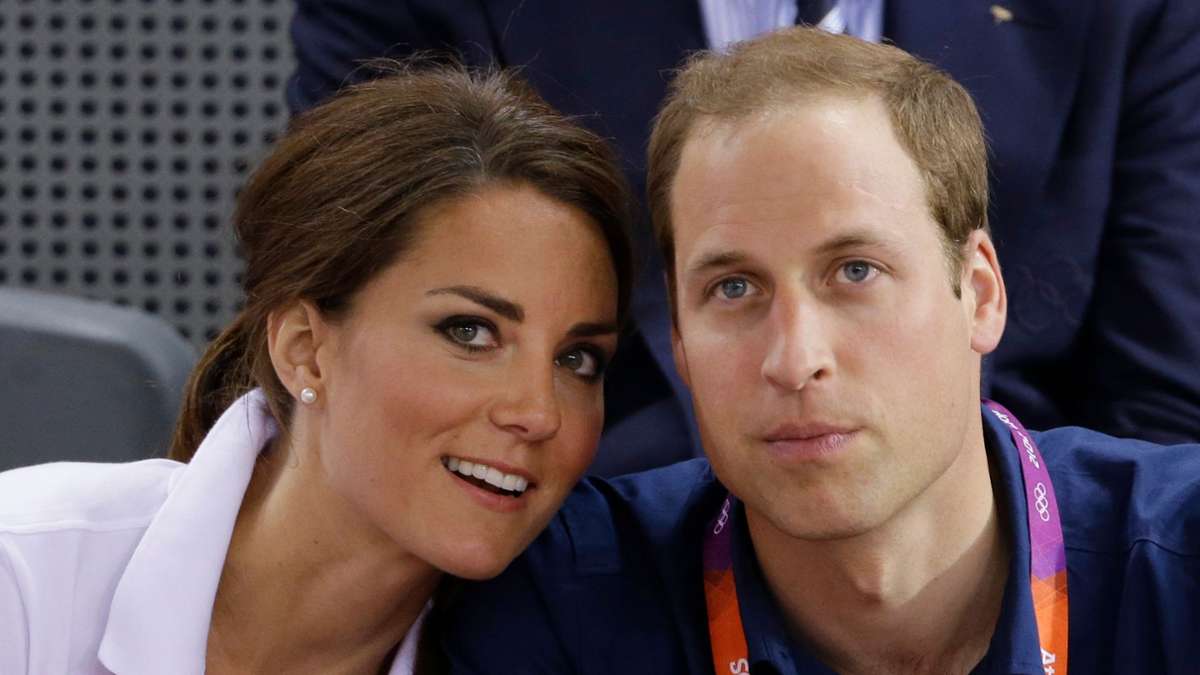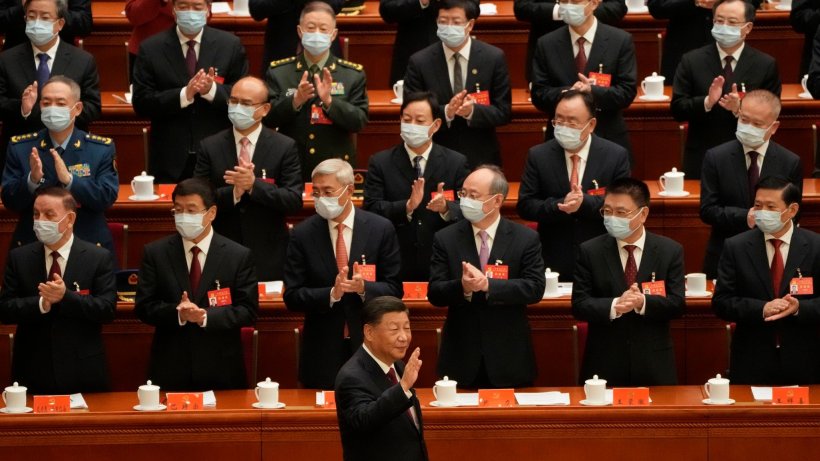party conference
‘Dangerous storms’ warning: Xi wants to strengthen his power
Xi Jinping arrived to attend the opening ceremony of the 20th Congress of the Communist Party of China.
Photo: Mark Schiefelbein/AP/dpa
It is the end of pragmatic reform and opening-up policies that have made China successful. With authoritarianism, party influence and ideology, Xi Jinping resorted to the old communist methods.
Beijing. The Chinese Communist Party wants to extend Xi Jinping’s power – for life and beyond. At the start of the party congress in Beijing, which takes place only every five years, the head of state and party leader prepared billions of people on Sunday for tough times and warned of “potential dangers”.
In his inaugural address, the president called on billionaires to “prepare for the worst case scenario”: “So prepare to withstand strong winds, rough seas, and even dangerous storms.”
Internationally, the party leader saw “enormous risks and challenges” as well as “global changes not seen in a century.” His nearly two-hour speech in the Great Hall of the People in front of the red flags and golden hammer and sickle was strongly ideological. He called on some 2,300 delegates to faithfully follow his leadership for the creation of a “modern socialist state”. This “Chinese modernization” will contribute to humanity.
Xi wants to secure a third presidential term
Delegates will appoint a new Central Committee. The board of directors should not only guarantee him a historic third term in office, but also guarantee him a leadership role for life – similar to Mao Zedong’s “Great Helmsman”, whose sole rule ended in chaos. The party congress will also embed Xi Jinping’s ideology more deeply into the party constitution so that it can serve as a guiding principle for decades to come. “Continuous changes will basically ensure that the party should do what Xi Jinping says,” said Ness Grunberg of the China Merex Institute in Berlin.
In his speech, Xi Jinping reiterated his dominant idea of ”common prosperity,” in which the party exerts greater influence on private capital and seeks better income distribution. His regulatory interventions in high-tech companies and private companies have not only scared investors, but also caused business meltdowns. “He has no sense or sympathy for the markets,” said Richard MacGregor of Australia’s Lowy Institute. Clumsy interventions have become costly.
Through his speech, Xi Jinping also dashed hopes that the country’s tough anti-coronavirus strategy could be relaxed. He described them as “essential” and saw “encouraging achievements”. As the rest of the world tries to live with the virus, China continues to pursue the goal of zero tolerance. However, lockdowns, mass testing, quarantines and digital contact tracing have plunged the second largest economy into a growth crisis.
The People’s Liberation Army must be expanded
Amid rising tensions with the United States over Taiwan, Xi Jinping called for the expansion of the People’s Liberation Army and threatened military action against the Peninsular Democratic Republic. China strives for a peaceful “unification”, “but we will never commit ourselves to giving up the use of force.” Beijing considers the island only part of the People’s Republic of China. Taiwan immediately dismissed the threats, and a presidential spokesman in Taipei said “confrontation is definitely not an option.” Taiwan is an independent country.
The conference is taking place under heavy security, which has been tightened after a rare protest by a man on a bridge holding a banner against “dictator Xi Jinping”. After a week-long deliberation, the 69-year-old will be appointed to the office of the Secretary-General and Chairman of the Military Committee. As he ignores previously respected state boundaries, the Politburo is reset around him for age reasons. The personnel change will provide the first evidence of the government reshuffle in March, when Premier Li Keqiang will step down as prime minister.
After ten years in the position of Xi Jinping, observers have made a critical assessment: “We have evolved from collective leadership to authoritarianism, from term limits to life-long leadership, from performance to loyalty, from private to state sector, from wealth to shared prosperity, from Globalization to technical independence,” said China expert MacGregor. The coexistence between China and the United States has also become a “confrontation”.
Chinese political scientist Wu Qiang saw increasing isolation as China closed its borders due to its zero-Covid policy and relied on self-reliance. “I think 40 years of reform and opening up are over,” said the lecturer, who had to leave the famous Tsinghua University in Beijing because of critical analyzes. “China has become strong through globalization, reform and opening up and has retained that strength, so it will not be easy to break away from it.” But ideologically, the policy of reform and opening up has long been abandoned.
© dpa-infocom, dpa: 221016-99-142766 / 4 (by Andreas Landwer, dpa)
More articles from this category can be found here: Abroad

“Alcohol buff. Troublemaker. Introvert. Student. Social media lover. Web ninja. Bacon fan. Reader.”







More Stories
Rishi Sunak announces UK investment pledges at the Global Business Summit
Porsche and the American company ClearMotion sign a cooperation agreement for highly advanced chassis systems
An airport in the UK cancels a 100ml liquid base using scanners